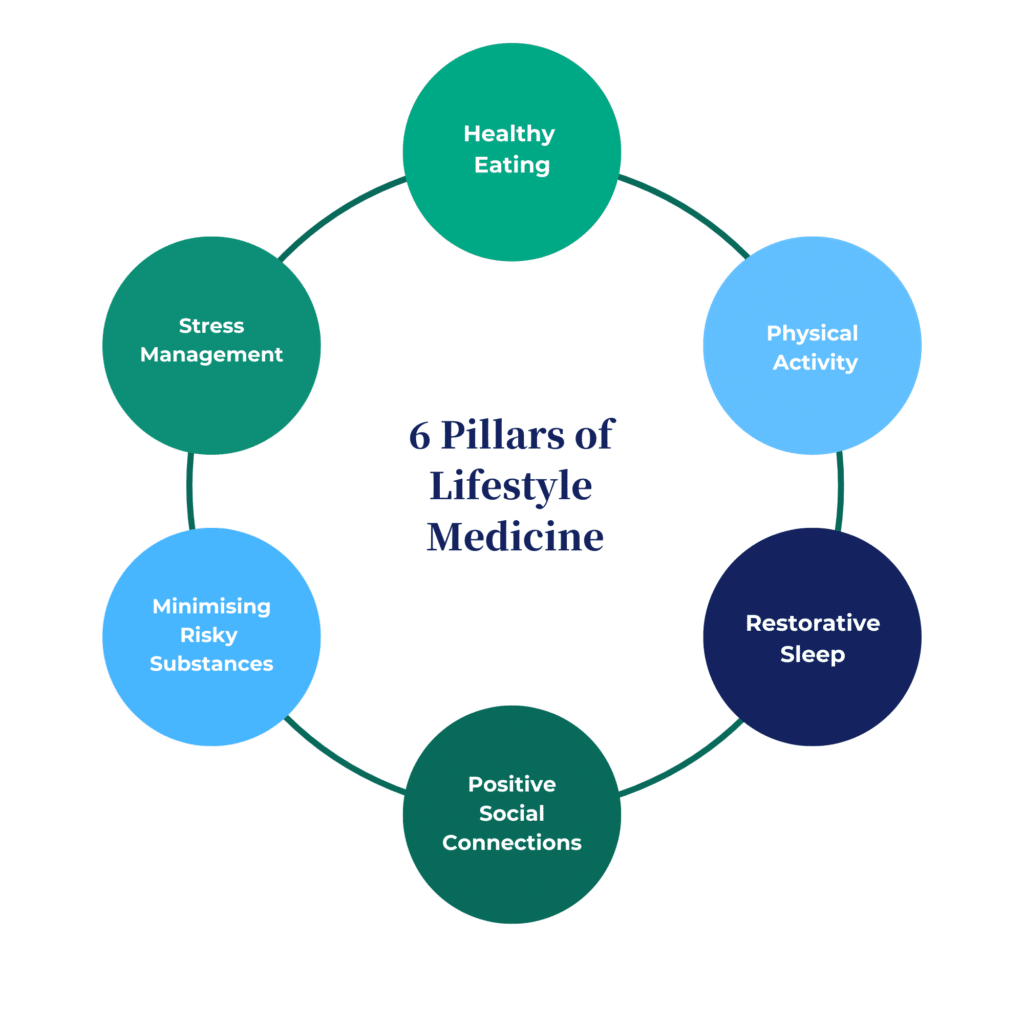Achieving success as a student is a multifaceted and ongoing journey that encompasses academic excellence, personal development, and overall well-being. It’s not just about securing top grades but also about cultivating a balanced lifestyle, managing time effectively, developing critical life skills, and learning how to overcome challenges. In today’s fast-paced world, students face numerous demands, from academic pressures to extracurricular activities and social responsibilities. Therefore, mastering the art of success as a student requires more than just intellectual capabilities—it demands resilience, discipline, and a proactive approach to personal growth.
In this article, we will explore essential strategies for achieving student success, offering practical tips that cover every aspect of student life. We will also highlight examples, tools, and resources that can aid in creating a comprehensive path to success.
Key Takeaways:
- Success is a Holistic Concept: Student success includes academic achievement, personal growth, and mental well-being.
- Growth Mindset is Key: Adopting a growth mindset helps students overcome challenges and persevere in the face of setbacks.
- Effective Time Management: Prioritizing tasks and using tools like calendars and productivity apps helps students stay on top of their responsibilities.
- Resilience is Crucial: The ability to bounce back from failures and manage stress effectively is essential for maintaining long-term success.
- Well-Being is Not Optional: Mental and physical health are integral to achieving success. Take care of yourself through exercise, sleep, and self-care practices.
By embracing these strategies, students can set themselves up for academic success, personal growth, and a fulfilling student experience. Success is a journey that requires balance, determination, and the right approach to navigating both academic and personal challenges.
1. Understanding the Foundations of Student Success

Success as a student is much more than academic achievement—it is about the holistic development of an individual. The foundation of student success is based on the following core pillars:
Academic Excellence:
At the heart of success is a commitment to academic excellence. Achieving top grades is important, but the real goal is to master the skills necessary to excel in your chosen field of study. Mastery of key subjects, critical thinking, problem-solving, and time management all contribute to academic success.
- Example: A student pursuing a degree in computer science who takes the time to deeply understand the fundamentals of programming will not only excel in exams but will also be prepared for real-world applications in software development.
Personal Growth and Development:
Beyond academics, success involves developing emotionally, socially, and intellectually. Personal growth involves self-awareness, resilience, emotional intelligence, and the ability to adapt to various situations and challenges.
- Example: A student who actively seeks leadership opportunities or engages in community service will develop key skills such as communication, empathy, and leadership, which will benefit them both during their studies and in their career.
Mental and Physical Well-Being:
Success is unsustainable without a focus on health. A balance between academic responsibilities and self-care is crucial. Students should maintain a healthy lifestyle, including proper nutrition, regular physical activity, and mental health practices like meditation or mindfulness.
- Example: A student who prioritizes their physical health by exercising regularly and managing stress through mindfulness will be more focused, energized, and capable of handling academic pressures.
Life Skills Development:
The ability to navigate daily life and tackle problems is essential for success. Life skills such as time management, financial literacy, communication, and decision-making are vital for students to thrive academically and in their personal lives.
2. Cultivating a Growth Mindset for Academic and Personal Growth

One of the most powerful strategies for success is developing a growth mindset, as introduced by Carol Dweck. Students with a growth mindset believe that their intelligence and abilities can be developed through dedication and hard work. This belief fosters resilience, motivation, and a love for learning, all of which are essential for success.
Here’s a table outlining ways to cultivate a growth mindset for academic and personal growth:
| Mindset Strategy | Description | Examples of Implementation | Benefits |
|---|---|---|---|
| Embrace Challenges | See challenges as opportunities for growth, not as obstacles. | – Take on difficult assignments. – Volunteer for leadership roles in projects. | – Boosts problem-solving skills. – Encourages perseverance. |
| Learn from Failures | Treat mistakes and failures as learning experiences, not as defeats. | – Reflect on why an exam was failed and use that to improve. – Ask for feedback after receiving a low grade to understand areas for improvement. | – Builds resilience. – Increases self-awareness. |
| Focus on Effort, Not Just Outcome | Recognize that success comes from consistent effort, not just innate ability. | – Celebrate the process of studying rather than just the grade received. – Acknowledge progress made through effort, such as improvements in a subject over time. | – Promotes a sense of accomplishment. – Develops self-motivation. |
| Be Open to Constructive Criticism | Welcome feedback and use it to improve. | – Actively seek feedback from teachers and peers. – Take note of areas for improvement and apply suggestions in future tasks. | – Enhances learning and growth. – Encourages self-improvement. |
| Practice Self-Reflection | Regularly assess your performance and set goals for personal growth. | – Keep a journal to track academic progress and reflect on personal growth. – Set weekly or monthly goals for self-improvement. | – Increases self-awareness. – Strengthens focus and goal-setting. |
| Surround Yourself with Growth-Minded People | Engage with others who encourage growth and learning. | – Join study groups that focus on learning and not just grades. – Attend workshops or seminars focused on personal development. | – Builds a supportive learning community. – Encourages motivation through peer influence. |
| Cultivate Curiosity | Foster an eagerness to learn new things beyond academic requirements. | – Take part in extracurricular activities or hobbies that pique your interest. – Explore topics outside the curriculum through books, documentaries, or online resources. | – Stimulates intellectual curiosity. – Broadens knowledge and skills. |
How to Develop a Growth Mindset:
- Accept Challenges: View challenges as opportunities to grow rather than obstacles. For example, instead of avoiding difficult coursework, take it on with the understanding that it will push you to develop new skills.
- Learn from Criticism: Constructive feedback is a tool for improvement. Instead of being discouraged by criticism, use it as an opportunity to understand what you can do better.
- Celebrate Effort Over Results: Instead of solely celebrating grades, focus on the effort you put into the work. Praise yourself for persistence, creativity, and problem-solving, which are all essential for learning.
- Focus on Progress: Break your long-term goals into smaller, achievable steps. Recognizing incremental progress can boost motivation and reinforce the growth mindset.
3. Time Management: The Cornerstone of Academic and Personal Success

Time management is the cornerstone of student success. With the numerous commitments students juggle—classes, assignments, social activities, jobs, and personal time—managing time efficiently is essential. Successful students don’t just manage their time; they optimize it.
Here’s a table highlighting the importance of time management as the cornerstone of academic and personal success, along with strategies to implement it effectively:
| Time Management Strategy | Description | Examples of Implementation | Benefits |
|---|---|---|---|
| Prioritize Tasks Using the Eisenhower Matrix | Categorize tasks based on urgency and importance to focus on what matters most. | – Divide tasks into four quadrants: Urgent & Important, Not Urgent but Important, Urgent but Not Important, and Neither Urgent nor Important. – Focus on the first two quadrants for maximum productivity. | – Enhances focus on high-priority tasks. – Reduces procrastination and stress. |
| Time Blocking | Allocate specific blocks of time for each task to reduce multitasking. | – Plan your day by scheduling time slots for studying, exercising, socializing, and relaxation. – Use a digital calendar or planner to create your blocks. | – Increases productivity by eliminating distractions. – Improves concentration. |
| Set SMART Goals | Set Specific, Measurable, Achievable, Relevant, and Time-bound goals. | – Break down long-term goals into smaller, manageable tasks. – Track your progress weekly and adjust your approach as necessary. | – Ensures clarity and direction. – Keeps you motivated and on track. |
| Use the Pomodoro Technique | Break study sessions into short, focused intervals followed by breaks. | – Study for 25 minutes, then take a 5-minute break. After four sessions, take a longer break (15-30 minutes). | – Improves focus and productivity. – Prevents burnout and fatigue. |
| Eliminate Distractions | Identify and remove distractions to stay focused on the task at hand. | – Turn off social media notifications. – Use apps like “Forest” or “Focus@Will” to limit distractions. | – Increases work efficiency. – Helps in staying focused longer. |
| Maintain a Balanced Schedule | Ensure there’s time for both academic tasks and personal well-being. | – Incorporate study time, relaxation, exercise, social activities, and sleep into your weekly plan. – Maintain a consistent routine to stay on track. | – Reduces stress and burnout. – Enhances overall well-being. |
| Review and Reflect Weekly | Set aside time to evaluate progress and adjust plans. | – Every week, take time to assess completed tasks, review academic performance, and refine upcoming goals. | – Helps identify areas for improvement. – Keeps you aligned with long-term objectives. |
| Delegate When Possible | Recognize when to delegate tasks to others to manage workload effectively. | – If part of a group project, delegate research or presentation tasks to team members based on strengths. – Seek help when overwhelmed with workload. | – Prevents overburdening yourself. – Encourages teamwork and collaboration. |
Effective Time Management Techniques:
- The Pomodoro Technique: Break your study time into 25-minute intervals with 5-minute breaks in between. This technique helps you stay focused and reduces burnout by allowing your brain to rest and recharge.
- Task Batching: Group similar tasks together to improve efficiency. For instance, instead of switching between writing papers, checking emails, and attending meetings, set specific times for each task.
- Prioritization: Use methods like the Eisenhower Matrix to prioritize tasks. Tasks that are important and urgent should take precedence, while those that are neither should be postponed or eliminated.
Example:
A student can plan their day with specific blocks of time for each task. If they know they have a research paper due in two weeks, they might dedicate an hour each day to researching, writing, and editing, gradually completing the paper in manageable chunks.
4. Study Techniques and Learning Strategies

Effective study habits are one of the key determinants of academic success. Successful students use a variety of study techniques that help them not only retain information but also understand and apply it.
Popular Study Techniques:
- Active Learning: This involves engaging with the material rather than passively reading or memorizing. Techniques like summarizing key points in your own words or teaching someone else what you’ve learned help reinforce understanding.
- Spaced Repetition: Instead of cramming before exams, use spaced repetition techniques to review material over time. Apps like Anki or Quizlet can help you create flashcards for review at increasing intervals.
- Mind Mapping: Visual learners can benefit from mind mapping, which helps break down complex topics into a hierarchical structure that is easier to understand and memorize.
- Practice Testing: Use past exams, quizzes, and flashcards to test your knowledge. Regular self-testing has been shown to improve memory retention.
5. Building Resilience and Managing Stress

University life can be stressful, and handling that stress effectively is crucial for student success. Resilience refers to the ability to bounce back from setbacks and challenges, while stress management techniques help maintain emotional balance and mental clarity.
Resilience and Stress Management Tips:
- Mindfulness and Meditation: Mindfulness helps students stay focused on the present moment, reducing anxiety and stress. Meditation techniques, such as deep breathing exercises, can also help lower stress levels and improve concentration.
- Social Support: Surround yourself with supportive friends, family, and mentors. Engaging in open communication and seeking advice can reduce feelings of isolation and stress.
- Physical Activity: Exercise is one of the most effective ways to reduce stress. Whether it’s a brisk walk, yoga, or weightlifting, regular physical activity boosts mood and increases energy levels.
Resilience Example:
A student who faces academic failure, such as receiving a poor grade on an exam, can use this setback as an opportunity for growth. Instead of giving up, they might reflect on what went wrong, seek help, and work harder to improve in future exams.
6. Achieving a Balanced Lifestyle: Well-Being and Social Life
While academics are important, success also depends on maintaining a healthy balance between study, social life, and personal well-being. Overworking or neglecting self-care can lead to burnout and hinder both academic and personal growth.

The Importance of Well-Being for Students
Well-being is the foundation of a student’s ability to succeed both academically and personally. Students often face significant pressure due to deadlines, exams, and balancing multiple responsibilities, which can lead to stress, anxiety, and burnout. Therefore, focusing on well-being is crucial to avoid mental and physical exhaustion and to enhance academic performance.
Physical Well-Being
Physical health directly impacts your energy levels, mood, and ability to focus. Regular exercise, proper nutrition, and adequate sleep are essential to maintain physical health. Research shows that regular exercise can improve cognitive function, enhance mood, and increase energy levels, which is essential for managing academic tasks and studying effectively.
Strategies to Enhance Physical Well-Being:
- Exercise regularly: Aim for at least 30 minutes of moderate exercise, such as walking, jogging, or yoga, 3-5 times a week.
- Eat balanced meals: Focus on eating a variety of foods, including fruits, vegetables, lean proteins, and whole grains.
- Get enough sleep: Aim for 7-9 hours of sleep per night to ensure mental clarity and reduce stress.
Mental Well-Being
Mental well-being involves managing stress, anxiety, and emotions, which can directly affect academic performance and personal happiness. Fostering a positive mental state requires self-care practices, self-compassion, and learning to manage stress.
Mental Health Strategies:
- Practice mindfulness and meditation: These practices can help reduce stress and improve concentration.
- Seek support when needed: Don’t hesitate to speak with a counselor, therapist, or trusted individual when you feel overwhelmed.
- Develop a growth mindset: See challenges as opportunities for growth and learning, which can help you handle academic pressures more effectively.
Well-Being Tips for Students:
- Sleep: A full night’s sleep is essential for mental clarity and memory retention. Aim for 7-9 hours per night, especially during peak academic periods.
- Nutrition: Eating balanced meals boosts energy levels, improves concentration, and helps reduce stress. Avoid excessive caffeine or junk food, which can negatively impact your focus and mood.
- Social Interaction: Spend time with friends and engage in activities outside of academics to recharge. A healthy social life helps maintain mental well-being and creates a support network during tough times.
Well-Being Example:
A student who ensures they get enough sleep, engage in regular physical activity, and maintain close friendships will have better mental clarity, reduced stress, and improved academic performance.
Also Read: Mastering Time Management: Key Strategies For Student Success
Conclusion
Achieving student success is not just about grades—it involves developing a well-rounded approach that includes time management, personal growth, resilience, and well-being. Success comes from setting clear goals, developing strong study habits, maintaining a healthy balance between school and personal life, and embracing a growth mindset. Students who apply these strategies will be better prepared to navigate challenges, succeed academically, and grow personally.
Frequently Asked Questions (FAQs)
1. What is the key to achieving student success?
The key to student success lies in balancing academic excellence with personal growth. This includes effective time management, cultivating a growth mindset, prioritizing mental and physical well-being, and developing resilience in the face of challenges. Success is also about embracing a holistic approach, where learning, social engagement, and self-care all play an important role.
2. How can I improve my time management as a student?
Improving time management involves setting clear goals, creating a daily schedule, using time-blocking techniques, and staying organized. Tools like the Pomodoro Technique, task batching, and prioritization methods such as the Eisenhower Matrix can help maximize productivity and reduce procrastination. Regularly reviewing your schedule and adjusting it as needed will help you stay on track.
3. What are some good study techniques for students?
Some effective study techniques include active learning, spaced repetition, practice testing, and mind mapping. Active learning involves engaging with the material through activities like summarizing and teaching others. Spaced repetition helps with long-term retention, and practice tests allow you to assess your knowledge. Mind mapping visually breaks down complex topics into manageable segments.
4. How do I build resilience in my academic journey?
Building resilience starts with developing a positive mindset that embraces challenges and setbacks as opportunities for growth. Strategies include practicing mindfulness, maintaining a healthy lifestyle, staying connected with supportive peers and mentors, and learning from mistakes. It’s important to stay adaptable and persistent even when facing academic difficulties.
5. Is it really necessary to maintain a social life during college?
Yes, maintaining a social life is crucial for student success. It helps prevent isolation, provides emotional support, and contributes to personal growth. Engaging in social activities and spending time with friends offers a much-needed break from academic pressures, boosts mental well-being, and fosters a sense of community.
6. How can I handle stress as a student?
Stress management techniques such as mindfulness, meditation, regular physical activity, and maintaining a balanced lifestyle can help reduce stress levels. Additionally, reaching out to friends, family, or counselors for support when feeling overwhelmed can be beneficial. Practicing time management and avoiding procrastination can also reduce the stress associated with looming deadlines.
7. How can I balance my academic and personal life effectively?
Balancing academic and personal life requires setting clear boundaries, prioritizing tasks, and practicing good time management. Be sure to allocate time for studying, but also make room for personal interests, physical exercise, socializing, and rest. Regular self-assessment and being flexible with your schedule will help you stay balanced while ensuring that both academic goals and personal well-being are maintained.





